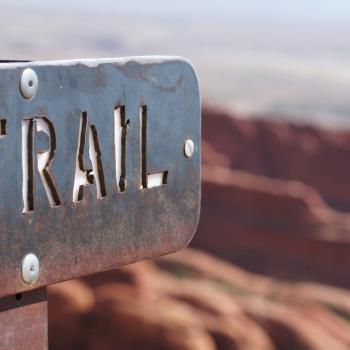
Our world is filled with voices calling us in all different directions. How can we stay on the right path? By getting our priorities right!
Scripture:
Ezra, chapters 2-3; Luke, chapter 8
Ezra 3:1-6 (NLT):
In early autumn, when the Israelites had settled in their towns, all the people assembled in Jerusalem with a unified purpose. Then Jeshua son of Jehozadak joined his fellow priests and Zerubbabel son of Shealtiel with his family in rebuilding the altar of the God of Israel. They wanted to sacrifice burnt offerings on it, as instructed in the Law of Moses, the man of God. Even though the people were afraid of the local residents, they rebuilt the altar at its old site. Then they began to sacrifice burnt offerings on the altar of the Lord each morning and evening.
They celebrated the Festival of shelters as prescribed in the Law, sacrificing the number of burnt offerings specified for each day of the festival. They also offered the regular burnt offerings and the offerings required for the new moon celebrations and the annual festivals as prescribed by the Lord. Fifteen days before the Festival of Shelters began, the priests had begun to sacrifice burnt offerings to the Lord. This was even before they had started to lay the foundation of the Lord’s Temple.
Observations:
Rebuilding the Altar
The book of Ezra deals with the return of the exiles from Babylon to Judah. The passage I’ve set forth above takes place near the beginning of that return. In chapter 1, King Cyrus of Persia allowed the Jews to return from their exile. Cyrus became king when the Persians overthrew the Babylonian Empire. (You can find a related story in Daniel, chapter 5.) Ezra 2 lists the people who returned in this “first wave.” Ezra 2:64-65 tells us, “So a total of 42,360 people returned to Judah, in addition to 7,337 servants and 200 singers, both men and women.”
The group which returned from Babylon included numerous priests and Levites. However, there was no Temple in Jerusalem! Nebuchadnezzar had destroyed the Temple when he conquered the city (see 2 Chronicles 36:17-21). What would these priests and Levites do? Rebuild the Temple, right?
Yes, they would – but first, they rebuilt the altar of the God of Israel. They had their priorities right. The sacrifices prescribed in the Law of Moses were central to Israel’s worship of God. In fact, there was no Temple when God gave Moses the regulations relating to sacrifice. Israel worshiped at the Tabernacle – a tent, which could go wherever they went. But the altar was central to Tabernacle worship, just as it would be at the Temple. So they joined together and rebuilt the altar at its old site.
Getting Priorities Right
They rebuilt the altar first because the altar was central to their worship. The rebuilding of the Temple could wait. It was important to them – after all, God had promised to dwell there – but the altar represented sacrifice, and sacrifice meant obedience. They wanted to sacrifice burnt offerings on it, as instructed in the Law of Moses, the man of God.
This wasn’t just some token sacrifice, either. They celebrated the Festival of Shelters as prescribed in the Law, sacrificing the number of burnt offerings specified for each day of the festival. But their obedience wasn’t just for the Festival: They also offered the regular burnt offerings and the offerings required for the new moon celebrations and the annual festivals as prescribed by the Lord.They obeyed all of God’s commands regarding sacrifice and worship – because their priorities were right.
And it didn’t stop there! The people also gave voluntary offerings to the Lord. They didn’t view God’s commands as being the limit of their sacrifice; they gave voluntarily, above and beyond what the Law required. Why? Because they were grateful for all that God had done for them.
Getting Our Priorities Right
One of the challenges that we face in the Church today is the tendency to minimize the importance of obedience to God’s Word. “We’re not under Law; we’re under grace!” That’s true – but it doesn’t mean that we can do whatever we want! As Paul says in Philippians 2:13, “For God is working in you, giving you the desire and the power to do what pleases him.” Not do to what pleases us; what pleases Him. God has given us Scripture to help us to understand what pleases Him.
The heart of discipleship is acknowledging Jesus as Savior and Lord. The “Savior” part is easy; it simply requires that we admit that we need saving! But the “Lord” part is where the rubber meets the road. That involves the daily acknowledgment that we serve Jesus – that he is our Lord, our Master. And while his yoke is easy and his burden is light (Matthew 11:30), we need to read the first part of Jesus’ statement: “Take my yoke upon you. Let me teach you…” The yoke is easy because it fits “just right.” His burden is light because he helps us to carry it. But we have to surrender to Jesus as Lord – and affirm that surrender each day. Not just in words, but in action.
Prayer:
Father, thank you for reminding us that following Jesus means getting our priorities right. His Lordship means that we surrender to his sovereignty each day. And just as Jesus did, that means that we acknowledge you as the Almighty God. We glorify you by obeying you. As we pray each day that your will would be done, help us to remember that we must do your will. Help us to do that today. Amen.













